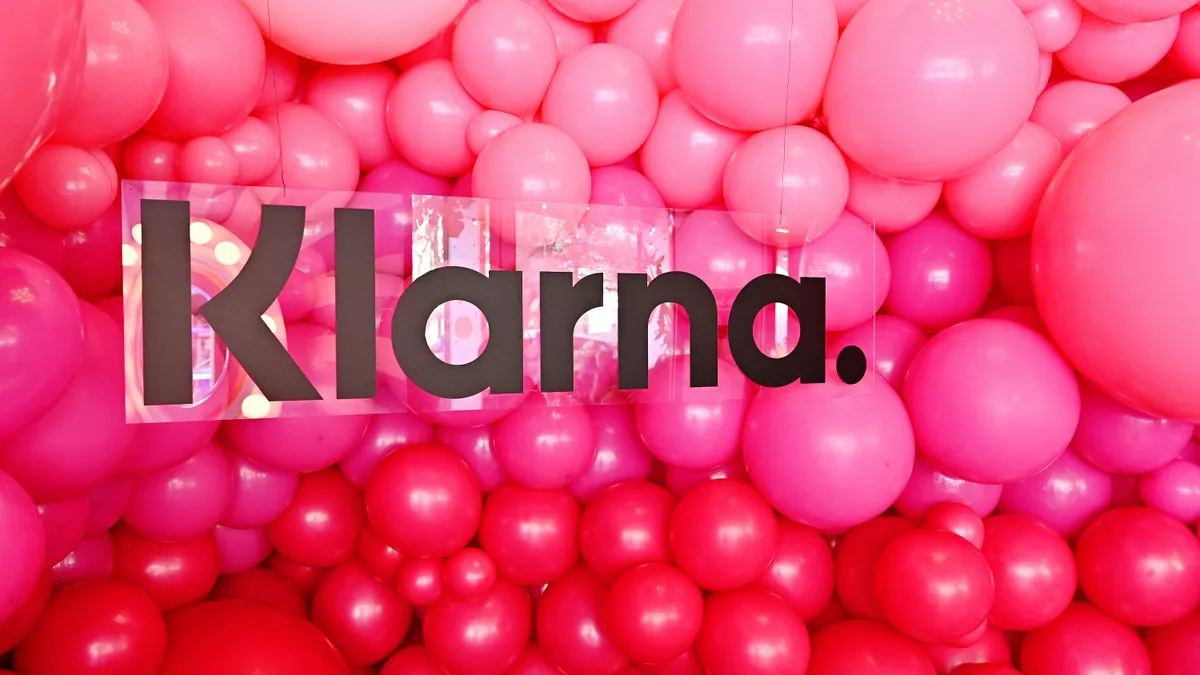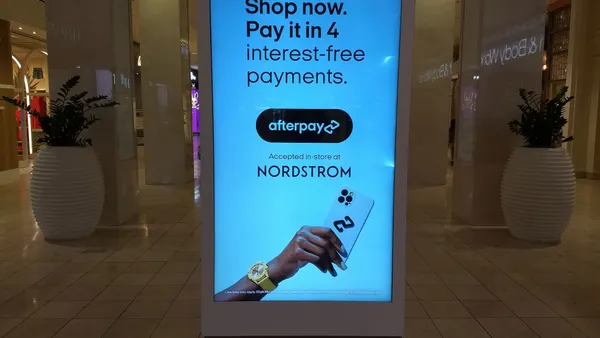Dive Brief:
-
Klarna, the Swedish buy now-pay later (BNPL) payment provider raised $639 million in its latest funding round, taking the fintech’s valuation to $45.6 billion, according to the company’s June 10 press release. The company has raised $3.7 billion since its inception in 2005, according to Crunchbase.
-
The funding round was led by Japan’s Softbank Vision Fund 2, with Adit Ventures, Honeycomb Asset Management and WestCap Group joining in. The company didn’t disclose the specific amount raised from individual investors and how much equity they hold.
-
Klarna aims to use the funds to fuel its international expansion efforts, seeking to further capture global retail opportunities and provide more in-store payment options, a company spokesperson told Payments Dive in an email. Currently, the BNPL payment provider is available in 17 countries, including the U.S., the U.K. and Canada. The company plans to expand in other markets this year.
Dive Insight:
The buy now-pay later payment option has gained significant traction among users this past year and Klarna is looking to capitalize on the growing adoption of BNPL payment options.
According to a Forrester webinar held in December 2020, nearly "36% of U.S. online adults are interested in, currently use, or have used a (BNPL) service for a large purchase."
Klarna, one of the biggest BNPL companies, has collected over 90 million customers worldwide since its inception in 2005. The Swedish company entered the U.S. market in 2015 and accumulated 17 million users in the country as of April 2021, a doubling of year-over-year performance, according to the company’s Q1 2021 financial statement.
In Q1 2021, the company reported a gross merchant volume (GMV) of $18.9 billion, compared to $9.9 billion in Q1 2020. The change was "driven by growth in all markets and exceptional momentum in the U.S.," the Q1 2021 report stated.
Since its debut in the U.S., Klarna has accumulated 9,000 merchants in the U.S. and 250,000 retailers across the globe. The company also aims to expand its in-store BNPL payment option.
“We’re currently live in-store with 60,000 physical stores nationwide - including brands like Bluemercury, Macy’s, Sephora, H&M, Footlocker, GameStop, The North Face, and more, as part of our goal to provide a more unified shopping experience for consumers,” the spokesperson said, noting the company is preparing for more in-person shopping as the COVID-19 pandemic eases. “Expanding the in-store experience is a major priority as we support brands focusing on their in-store strategies as states and businesses continue to reopen throughout the year.”
Merchant adoption for such services has also increased as they try to satisfy customer demands for BNPL payment options. In a sample of 100 U.S. retailers, 26% offered a deferred payment method in January, 2020, but that percentage had climbed to 46% by December, the Forrester webinar stated.
This is the Klarna’s second round of fund-raising this year. In March 2021, Klarna raised $1 billion, giving it a valuation of $31 billion at the time.
Klarna launched its services in France this week and introduced a new “Pay in 3” installment option. It aims to expand to other countries by the end of 2021, the company spokesperson said. The BNPL giant also plans on donating 1% of the equity raised to initiatives supporting planet health, as a part of its GiveOne initiative announced in April 2021.
"Consumers continue to reject interest-and fee-laden revolving credit and are moving toward debit while simultaneously seeking retail experiences that better meet their needs,” Klarna CEO Sebastian Siemiatkowski said in the press release.
Klarna plans not only to expand its offering to new customers but also aims to increase loyalty among its existing users, Rightpoint Chief Commerce Officer Phillip Jackson told Payments Dive. Rightpoint uses market data and analysis to help create websites, mobile apps and digital journeys for its customers, Jackson said.
The market has two types of customers – "stockers," who stick to their brands and shop in a consistent way, and "seekers," who tend to experiment with other brands to have a variety of products and services, he said.
“Klarna has a huge wealth of customer data and they can leverage that to own the first-party relationship with their customers, which makes it appealing to stocker shoppers,” Jackson said. “The companies Klarna has partnered with, gives seekers the opportunity to experiment with different brands as well.”
Although the company has more than tripled its valuation in 2021, building the BNPL payment option in the U.S. remains a significant hurdle for Klarna.
In a crowded BNPL marketplace, Klarna’s rivals like PayPal, Splitit and Affirm are adding features like the purchase return option and providing BNPL payment options for professional services to its customers.
“Although it may seem like everyone is using BNPL – our data (for the U.S.) show it’s still a small percentage of online shoppers,” Forrester analyst Lily Varon told Payments Dive in an email. “BNPL companies are simultaneously looking for new revenue streams and trying to find ways to make their service more attractive and stickier for both merchants and consumers."












